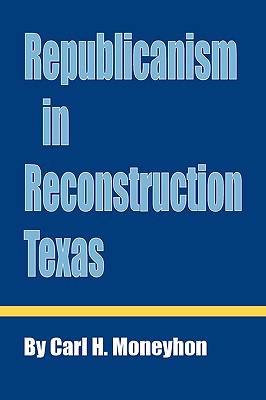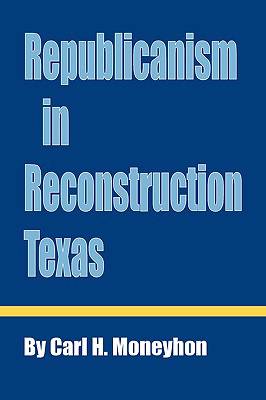
- Afhalen na 1 uur in een winkel met voorraad
- Gratis thuislevering in België vanaf € 30
- Ruim aanbod met 7 miljoen producten
- Afhalen na 1 uur in een winkel met voorraad
- Gratis thuislevering in België vanaf € 30
- Ruim aanbod met 7 miljoen producten
Zoeken
€ 30,95
+ 61 punten
Omschrijving
On July 21, 1870, a group of selfstyled "Conservatives" met in Austin to discuss the political situation in the state. In almost hysterical tones they attacked the Republican administration of Governor Edmund J. Davis for assuming despotic powers. In every action of his newly installed administration they saw limitations placed on their civil rights. The men who met in Austin believed that they were in the middle of a revolution against traditional political societies and called upon all citizens to help them stop the activities of the Republicans. Many such events characterized the years following the Civil War in Texas, which brought turmoil, economic hardship, freedom for former slaves, Reconstruction policies, and Republican party rule. For better or worse, depending on one's perspective, the world had turned upside down, and Southerners blamed state Republican parties and their leaders for the upheaval. This classic study of post_Civil War Texas, first published in 1980, gives a thorough account of the rise and functioning of the Republican party until its defeat by resurgent Democrats in 1874. Moneyhon focuses on Republican leaders, constituents, ideology, policies, and relations with the national party in an attempt to uncover the basis of the Southern Republican movement. The object of so much feeling in its time, Southern Republicanism has long intrigued historians of the American political process. Political scientists, historians, and anyone interested in post_Civil War Texas will find much to ponder in this work, because to understand the dynamics of the Republican movement is to better grasp the nature and possibility of social change.
Specificaties
Betrokkenen
- Auteur(s):
- Uitgeverij:
Inhoud
- Aantal bladzijden:
- 344
- Taal:
- Engels
- Reeks:
Eigenschappen
- Productcode (EAN):
- 9781585441112
- Verschijningsdatum:
- 19/12/1980
- Uitvoering:
- Paperback
- Formaat:
- Trade paperback (VS)
- Afmetingen:
- 153 mm x 229 mm
- Gewicht:
- 530 g

Alleen bij Standaard Boekhandel
+ 61 punten op je klantenkaart van Standaard Boekhandel
Beoordelingen
We publiceren alleen reviews die voldoen aan de voorwaarden voor reviews. Bekijk onze voorwaarden voor reviews.











